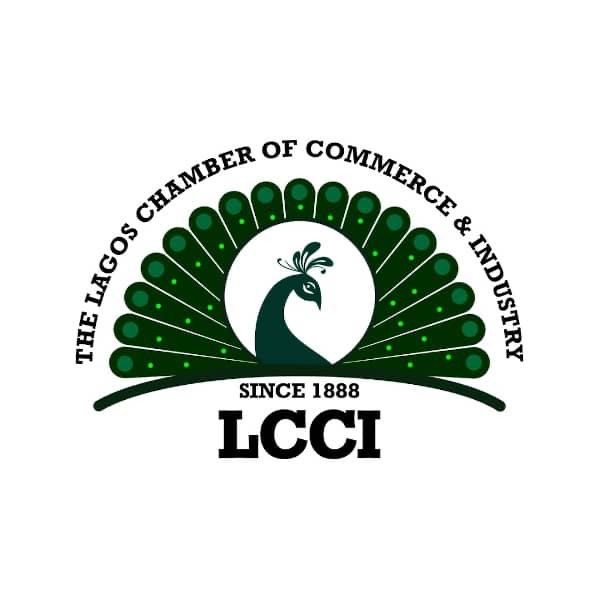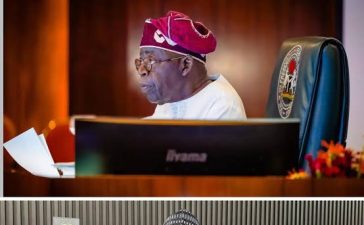The Lagos Chamber of Commerce & Industry (LCCI) has raised concerns about the federal government’s 2025-2027 Medium-Term Expenditure Framework (MTEF), calling certain assumptions in the proposed budget too optimistic given the current economic realities.

According to the LCCI, the proposed N47.9 trillion expenditure for 2025 is an increase of 36.64% compared to N35.06 trillion in 2024, marking the highest-ever budget in nominal terms.
However, the Chamber has questioned the feasibility of the economic projections, highlighting the critical challenges posed by inflation, exchange rates, and national debt.
Exchange Rates and Inflation Concerns: Optimism Meets Reality
LCCI’s review of the MTEF pointed out that the federal government’s assumptions regarding key macroeconomic factors appear overly optimistic in light of the current economic environment.
Specifically, the chamber criticized the assumption that the exchange rate will stabilize at N1,400 to the dollar, considering the actual average of above N1,600 in both official and parallel markets.
In addition, the LCCI found the projected inflation rate of 15.8% to be unrealistic, given that inflation had already reached 33.88% as of October 2024.
Dr. Chinyere Almona, Director-General of LCCI, emphasized that these inflationary pressures, combined with an overvalued exchange rate assumption, could jeopardize the federal government’s fiscal performance for 2025.
“With inflation at a 33-year high and rising costs, it is highly unlikely that inflation will fall drastically by 51% within a year,” she noted.
Rising Debt Servicing: A Growing Fiscal Burden
Another major concern raised by LCCI was the substantial increase in debt servicing. The 2025 MTEF proposes a 91.2% rise in debt service, bringing the total to N15.38 trillion, which accounts for 32.1% of the total budget.
The LCCI described this as unsustainable, particularly given the current national debt of approximately N134 trillion as of June 2024.
Furthermore, the proposed fiscal deficit of N13.08 trillion, coupled with N9.22 trillion in new borrowings, raises significant alarm about the country’s ability to manage such a heavy debt load.
LCCI has called on the Central Bank of Nigeria (CBN) to continue its support for the federal government’s budget through the Ways and Means Advances program, but within a limited five percent cap for fiscal years 2024-2025.
The chamber also urged the government to adhere to the Fiscal Responsibility Act to ensure fiscal discipline in managing its budget and borrowing.
The Need for Strategic Investments in Resilient Sectors
LCCI further emphasized the importance of strategic investments in sectors that drive economic growth and stability, such as food production, energy supply, and infrastructure.
“The current economic conditions require a focus on sectors that are resilient and have the potential to drive economic recovery,” said Almona.
The LCCI specifically recommended prioritizing food production (including crop, livestock, fisheries, and poultry), improving power supply, addressing insecurity, and promoting a stable policy and regulatory environment.
The chamber also stressed the need for a comprehensive approach to combating the impacts of climate change.
In recent months, Nigeria has witnessed widespread destruction of lives and properties due to climate-related events, and LCCI called for increased funding to tackle both climate change mitigation and adaptation strategies.
Recommendations for Fiscal and Policy Adjustments
LCCI’s statement underscored the importance of a robust and coordinated approach between monetary and fiscal policies, particularly in areas such as energy costs, supply chain disruptions, and reducing youth unemployment through skills acquisition and support for Small and Medium Enterprises (SMEs).
The chamber also called for more proactive measures to address the country’s infrastructure deficits, which continue to constrain economic growth and development.
Dr. Almona concluded with a call to the federal government and lawmakers to adopt more realistic assumptions in the 2025 budget, ensure greater fiscal discipline, and focus on economic policies that foster long-term growth, stability, and resilience.
Key Highlights of LCCI’s Statement:
- Projected Budget Increase: Proposed expenditure of N47.9 trillion for 2025, a 36.64% rise from 2024.
- Inflation and Exchange Rate Assumptions: LCCI deems assumptions of 15.8% inflation and N1,400 exchange rate too optimistic.
- Debt Servicing Concerns: Projected debt service rises by 91.2% to N15.38 trillion, constituting 32.1% of the total budget.
- Recommendations for Key Sector Investments: LCCI advocates for strategic investments in food production, energy, and SME empowerment.







